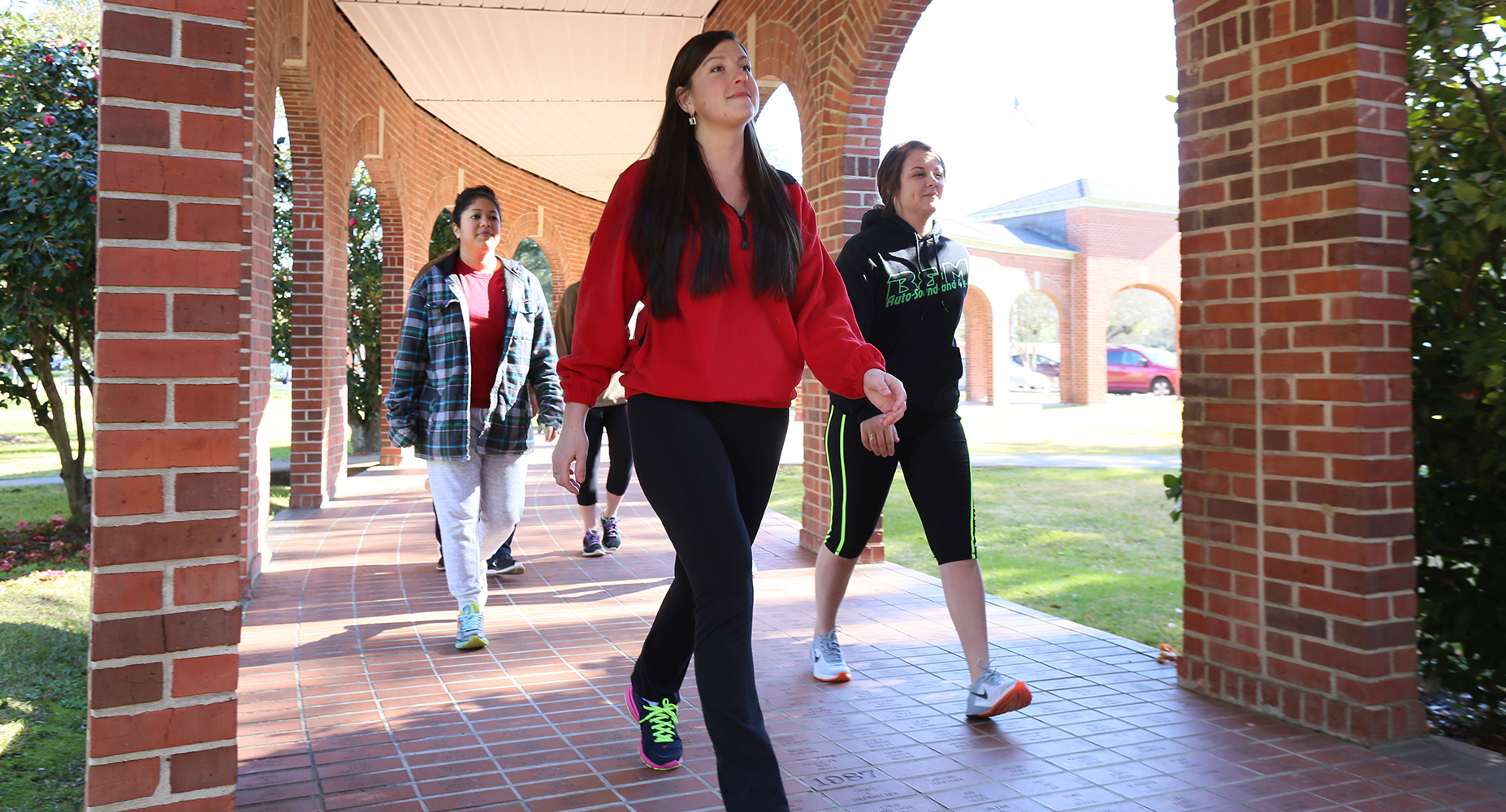Members of the University of Louisiana at Lafayette’s walking club have logged a collective 643 miles since the club was launched last spring.
That’s about the equivalent of walking from Lafayette to Nashville, Tenn.
Rachel Fournet, an assistant professor of dietetics, was motivated to start the club for University students and employees after seeing a report that pegged Louisiana as having the highest obesity rates in the nation.
For members, it’s about more than simply lacing up a pair of walking shoes for 30 minutes two or three times each week.
The club also promotes healthier lifestyles through proper diet and nutritional counseling, or, “a cycle of improved health, one little step at a time,” as Fournet refers to it. “Once you start walking, you’re going to feel better,” she explained. “The body’s oxygenated. You’re building glycogen stores in muscle, and you’re going to want to eat better.”
Giovanna Rocha, a junior dietetics major who is also a member of the walking club, said she noticed she had less energy when she quit walking during the holidays.
“My energy level increases during the semester when I walk, and I’m also motivated to eat healthier,” Rocha said. “When I’m walking, I’ll think to myself, ‘I shouldn’t eat this pizza because it’s going to counteract all the hard work I’m doing.’ ”
Research backs Rocha’s assertions.
According to a new study published in The Scandanavian Journal of Medicine and Science in Sports, even a leisurely stroll at lunchtime has benefits that go beyond peeling off a few pounds.
Participants in the study, as outlined in a recent New York Times article, were cheerier and better able to handle stress after a short, midday walk.
Members of the UL Lafayette walking club can walk anywhere they choose, but several predetermined routes on campus have been measured for their convenience.
Weekly totals are reported to the dietetics program in Hamilton Hall. Members also email photos showing the mileage displays on their pedometers, GPS devices or treadmills.
Walkers are encouraged, but not required, to exercise in pairs or groups, for moral support and accountability. “Alone, you’re going to find excuses,” Fournet said.
To join the free club, members sign a consent form, and in some cases, are required to get medical approval. New members are given a health assessment by UL Lafayette dietetics students, and receive a nutritional screening to ascertain caloric intake and nutritional habits.
Students also calculate the body mass index of members, gauging height, weight and body fat percentages. Progress reports are provided every three months.
“We all have something we could improve. It’s not really about being a certain weight, it’s nutritional soundness. Do you have antioxidants? Are you preventing cancer? Heart disease? We are proactive,” Fournet said.
Learn more about the walking club.
